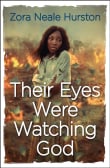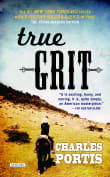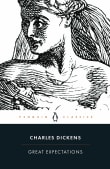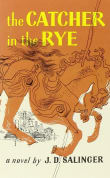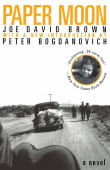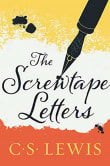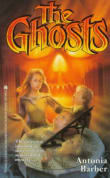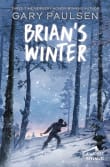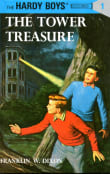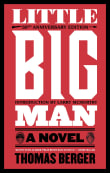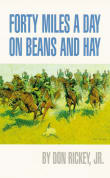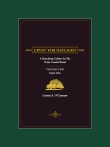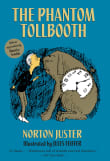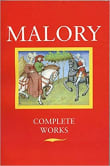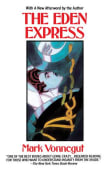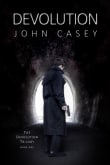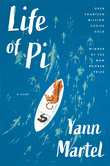The Adventures of Huckleberry Finn
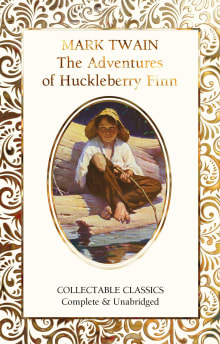
Book description
Why read it?
16 authors picked The Adventures of Huckleberry Finn as one of their favorite books. Why do they recommend it?

I’m the youngest of six sons. Our father read this book aloud to each of us. By the time I came along, he’d had lots of practice. He had distinct voices for all the characters. I can still hear him doing Jim’s voice after Jim gets whacked by the rattlesnake. I had nightmares for a week.
Your grasp of reality is altered when you read Huck Finn as a kid. Twain sweeps you out onto the Mississippi, where you mentally, emotionally, and physically, yes, physically, endure the journey with Huck and Jim.
I didn’t realize until I read the novel…
From Bill's list on novels to blow your mind.

Twain’s classic may be out of favor in certain circles, but it is a big, imaginative, sprawling narrative that slyly deals with the thorny issues of race relations in the antebellum South while being, I believe, one of the greatest and fondest depictions of boyhood ever penned.
I love how Twain captured not just the regional southern vernacular but painted a picture of a world now lost to us. To be clear, Twain’s portrayal of Jim, the black protagonist, and his friendship with Huck, a young white boy, is an arch sendup of the racism of the day, for at…
From Ken's list on coming of age survival and adventure.

There should be a bromance novel genre, and I nominate Mark Twain’s The Adventures of Huckleberry Finn as a prime example.
The relationship between Huck and Jim, the runaway slave, unfolds as leisurely as their raft down the Mississippi River. They grow closer with each adventure and encounters with people along the way. I love the gentle simplicity of Jim’s wisdom and Huck’s internal debates as he wrestles with his newfound understanding of the world.
The turning point in Huck’s moral awakening is when he rips up the letter to Miss Watson revealing Jim’s whereabouts. He is willing to risk…
From Annie's list on romance novels disguised as literary classics.
If you love The Adventures of Huckleberry Finn...

Mark Twain’s wit somehow manages to transcend time as he infuses this iconic character with the freshness of an innocent who is anything but.
The “road” in this story is the Mississippi River, and the method of transportation is a raft. The journey takes Huck on a transformational journey as he unlearns everything his society has taught him about good and bad and right and wrong. This uneducated boy begins to think for himself.
Once the plot resolves, Huck wants to escape being “sivilized” because he has learned it is anything but. He wants to “light out for the territory”,…
From Cinda's list on going on the road.

I saw Twain as a standup, audience driven, storyteller with a knack for stretching more than I did as a writer.
Slave Jim, to keep it topical, joining Huck who cleverly faked his death on a raft seeded a row of corn. The Mississippi River becomes the stalk. The exaggeratedly imagined Duke and rightful king of France began narratives that grew arms like an octopus seeding chain letters of nonsense.
I tire from the lengths to which Twain will stretch a situation. That being said, there are reasons I put the novel on my list of favorites. Finn was a…
From Jerome's list on human resolve in the face of moments of despair.

Huckleberry Finn is perhaps the best satire ever written about the cruel hypocrisy of American racism.
A white boy, Huck, narrates his voyage on a raft down the Mississippi River with his friend Jim, an escaped slave. Twain’s satire exposes the absurdities of slave society – and through Huck’s character development the novel shows how common sense and compassion can liberate us from the lies society tells.
Huck, at first tormented by what he perceives as his own moral failing (because his love and respect for Jim violate antebellum norms), learns to think for himself and to see the corruption…
From Michael's list on satires for crazy times.
If you love Mark Twain...

I’ve enjoyed Mark Twain's Adventures of Huckleberry Finn as much as any adult-focused novel. Considered the first truly American novel because of its narrator and use of language, the adventures entertain with humor and drama, while offering insights into humanity. The novel is narrated by an uneducated 19th Century rascal who flees "sivilization" on a raft down the Mississippi River with a runaway slave. Like our narrator, we see his Black companion as a human being, not as a stereotypical slave of the period. Also, Huck's language, and the many characters' vernacular, while "improper," is creative and effective. For example,…
From Ed's list on defying stereotypes to reveal powerful themes.

In case you missed it (I was a child actor, missed a lot of school) Huck Finn used to be taught in nearly every U.S. high school. This classic American novel, full of adventure and wanderlust, follows Huck and escaped slave Jim down the Mississippi River, in search of freedom. Huck just needed to bolt—anywhere would do. “All I wanted was to go somewheres; all I wanted was a change, I warn’t particular.”
Adventures of Huckleberry Finn is controversial because Twain often uses the N-word and some think the character of Jim is minstrel-like and racist. But Twain puts a…
From Diane's list on running away.

I first read The Adventures of Huckleberry Finn in a literature class. I did not expect to be entertained and to laugh so much. It was one of the few classics I’d gone through that did not feel like homework and I was glad to add it to my personal library. The young Huckleberry Finn tells his own tale of fleeing from his alcoholic father and joining the runaway slave Jim on his journey to the free states on the Mississippi River. His raw, childish voice comes to expose the evil of slavery and question the absurdities of his time…
From Ketsia's list on classic literature that won’t bore you silly.
If you love The Adventures of Huckleberry Finn...

Although written before YA literature was even a thing, Huck Finn is still the Big Daddy of them all! So many writers, including me, honed their craft by studying the simple but elegant vernacular of this first-person narration. Mark Twain gives careful consideration to each word he uses, which is why this novel was so admired by writers such as Ernest Hemingway, who wrote, "All modern American literature comes from one book by Mark Twain called Huckleberry Finn." And it has a beautiful message of acceptance and rising above conventional beliefs to become a more decent human being to…
From Daniel's list on classic YA that are coming-of-age gems.
Want books like The Adventures of Huckleberry Finn?
Our community of 12,000+ authors has personally recommended 100 books like The Adventures of Huckleberry Finn.






